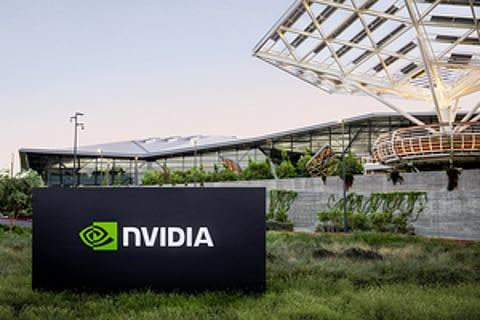
- LIFESTYLE
- FASHION
- FOOD
- ENTERTAINMENT
- EVENTS
- CULTURE
- VIDEOS
- WEB STORIES
- GALLERIES
- GADGETS
- CAR & BIKE
- SOCIETY
- TRAVEL
- NORTH EAST
- INDULGE CONNECT

Samsung Electronics has hinted at the potential supply of its advanced high-bandwidth memory (HBM) chips to Nvidia in the near future.
The South Korean tech giant has faced challenges in passing Nvidia's quality tests for its HBM3E chips, while competitor SK Hynix has recently started mass production of leading 12-layer HBM3E chips.
During a conference call following the release of its third-quarter earnings report, Kim Jae-june, vice president of Samsung's memory business, stated, "We are currently mass-producing both eight-layer and 12-layer HBM3E products." He noted that the company has made "meaningful progress" in meeting the quality standards for a "major customer," believed to be Nvidia, whose GPUs are crucial for AI computing, according to Yonhap news agency.
Kim expressed optimism about expanding sales in the fourth quarter, addressing concerns that Samsung had lagged in supplying HBM products to Nvidia. The company reported a more than 70 percent increase in HBM sales from the previous quarter, with the fifth-generation HBM3E chips projected to account for 50 percent of total HBM sales in Q4.
"We are increasing sales of our eight- and 12-layer HBM3E chips to various customers," Samsung noted, adding that it is enhancing its HBM3E offerings in line with the next-generation GPU plans of a significant client.
Additionally, Samsung is developing sixth-generation HBM4 products, with plans for mass production in the latter half of next year.
In its third-quarter earnings report, Samsung's semiconductor division posted an operating profit of 3.86 trillion won (US$2.8 billion), falling short of the market expectation of 4.2 trillion won.
Shares of Samsung Electronics rose by 1.02 percent to 59,700 won on the Seoul stock exchange, outperforming the KOSPI index, which dropped by 1.03 percent.